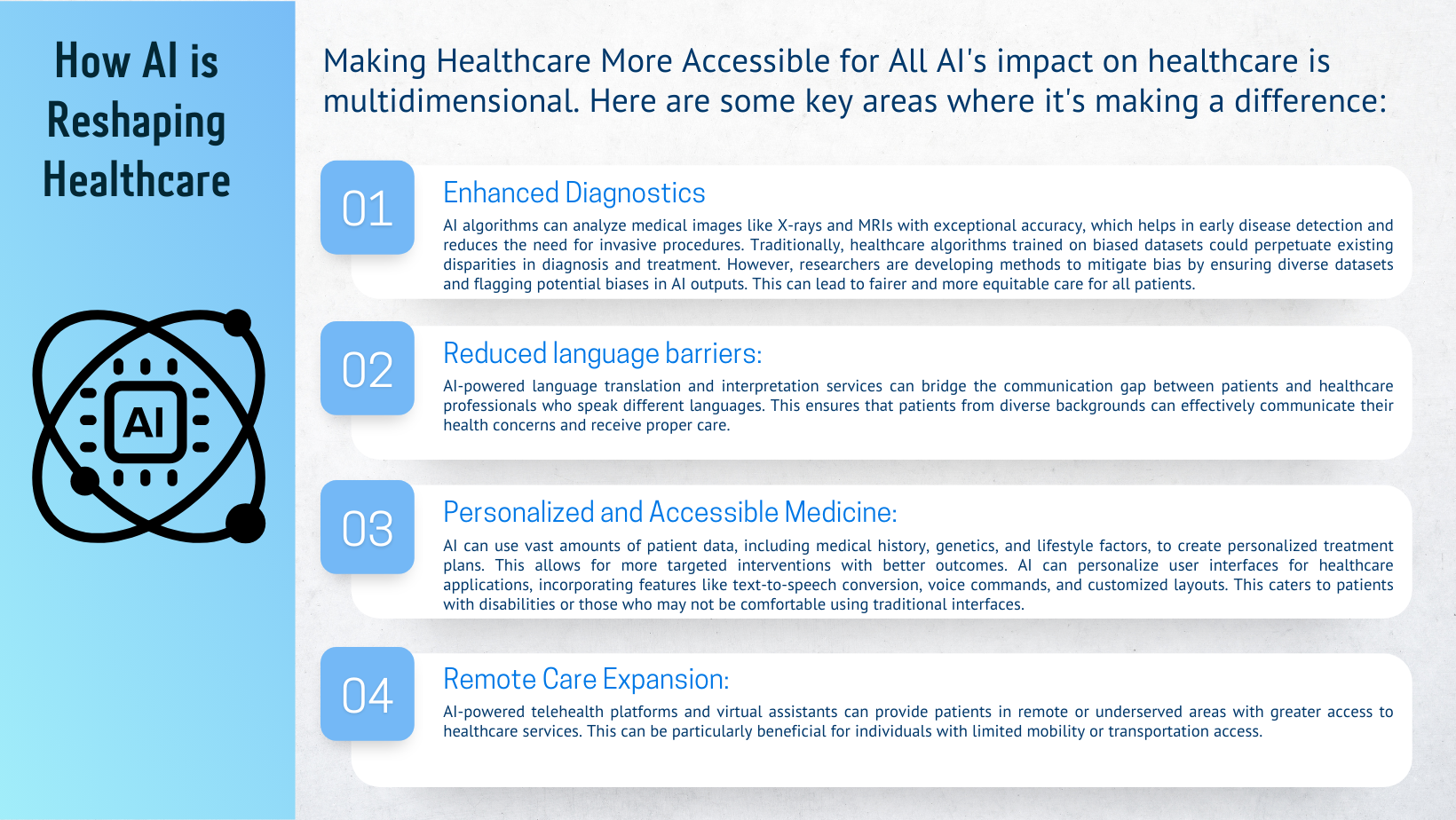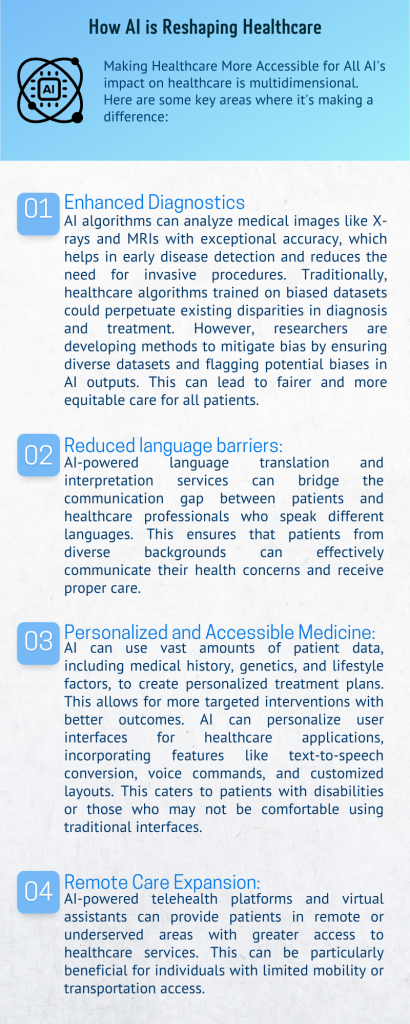
21 Jun AI: Revolutionizing the Healthcare Landscape, making it more accessible
The Global healthcare industry is undergoing a great shift driven by the transformative power of Artificial Intelligence (AI). In 2021, the global AI market in healthcare surpassed $11 billion USD, and is projected to reach a staggering $188 billion USD by 2030. This explosive growth reflects the increasing recognition of AI’s transformative power in healthcare. . The application of AI in healthcare has become greater in today’s world as the importance of this technology is realized. By dismantling communication barriers and geographical limitations, AI has helped to develop a more inclusive healthcare landscape where everyone receives the care they deserve. AI is no longer science fiction; it’s rapidly becoming integral to healthcare delivery, promising significant improvements in diagnosis, treatment, and overall patient care.
While there are many concerns about the increased use of AI in healthcare, such as threats to security and privacy, safety issues, and the potential for malicious entities to take over AI, AI is reshaping the healthcare landscape.


AI’s Big Players in Healthcare
Several healthcare companies are leveraging AI to become major players in the industry. Here are five notable examples:
1. Pfizer (https://www.pfizer.com/)—Pfizer is a leading pharmaceutical company that develops and manufactures medicines and vaccines. It leverages AI in various aspects of its work, including drug discovery, clinical trials, and manufacturing. For instance, they use AI to analyze vast amounts of data to identify potential new drug targets and to design and optimize clinical trials.
2. Johnson & Johnson (https://www.jnj.com/)—Johnson & Johnson is a multinational pharmaceutical and medical device company that utilizes AI in areas like drug discovery, surgery, and medical imaging. In surgery, for example, they use AI-powered surgical robots that assist surgeons with greater precision and control during minimally invasive procedures.
3. Roche (https://diagnostics.roche.com/) – Roche is a multinational healthcare company that focuses on pharmaceuticals and diagnostics. They leverage AI in medical imaging analysis, drug discovery, and personalized medicine. In medical imaging, AI helps analyze complex medical images, such as X-rays and MRIs, to identify abnormalities and improve diagnostic accuracy.
4. Siemens Healthineers (https://www.siemens-healthineers.com/) – Siemens Healthineers is a German multinational company focusing on healthcare. They use AI in medical imaging, diagnostics, and therapy planning. In diagnostics, AI helps analyze patient data from various sources, such as electronic health records and lab results, to identify potential health risks and personalize treatment plans.
5. Mayo Clinic (https://www.mayoclinic.org/ ) – Mayo Clinic is a world-renowned medical center known for its innovative approach to healthcare. They leverage AI in various areas, including patient diagnosis, treatment planning, and administrative tasks. They also utilize AI to automate tasks like scheduling appointments and managing patient records, freeing up staff time to focus on patient care.
The Future of AI in Healthcare
At Frost and Sullivan Institute, we believe in innovating health adversities to zero by making it inclusive and accessible to all. The future of healthcare gleams with the potential of AI. As this technology matures and becomes more ingrained in healthcare systems, we can expect even more groundbreaking advancements. From earlier disease detection to personalized treatment plans and expanded access to care in remote areas, AI holds immense promise for revolutionizing patient outcomes. However, navigating the ethical considerations of data privacy and ensuring AI complements, rather than replaces, human expertise remains crucial. .
Blog by Shreya Ghimire,
Research Analyst, Frost & Sullivan Institute
